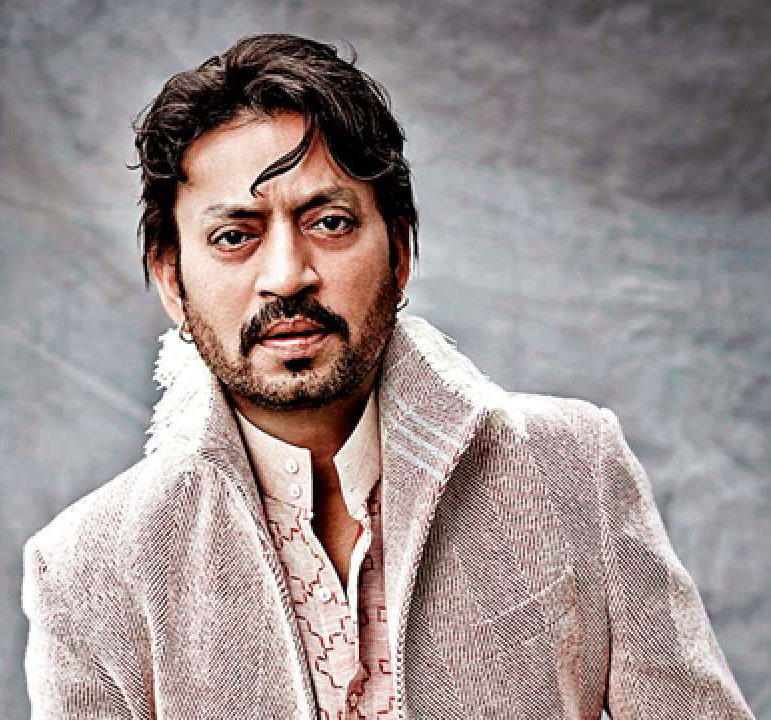Mohammed Wajihuddin
I was with The Indian Express then. The paper's Sunday edition wanted a small piece on Irrfan Khan, just a few films old but had created some ripples.
I called him up on his mobile phone. "Main Irrfan bol raha hoon (I am Irrfan speaking)," came the voice from the other end. Unlike the weight that Bollywood actors usually throw and often pretend to be too busy to keep you waiting, Irrfan agreed to meet the next day.
Somewhere inside the sprawling, lush green Aarey colony--much before a government allowed the green lung's rape by cutting thousands of trees in a night--there was an idyllic spot called Chhota Kashmir. I don't know why they called it a poor cousin of Kashmir, but the place was beautiful nevertheless. It suited Irrfan in the sense that he lived close by at Goregaon. He later shifted to Oshiwara-Lokhandwala area.
You see, in Mumbai, if you don't have a maibaap in Bollywood and yet want to make a name, you begin staying at faraway suburbs like Mira Road and Dahisar. As you climb the success ladder, you keep moving towards the city proper. Many say here that if you began as a struggled and managed to buy but a house in Juhu years later, it means you have come of age. You have become Amitabh Bachchan or Javed Akhtar of your chosen field.
So, since Irrfan was then still a minor, struggling actor, he was years away from acquiring a fancy address and lived at a modest flat in Goregaon.
So we met at the appointed hour and sat on a bench to chat. With boats stranded on placid pond water and a few ducks swimming languidly, we began our talk. There were a few people around, and the place was calm and quiet. We saw a man selling coffee in a huge coal-warmed kettle. This is another jugar in the Maximum city to survive. There was no fancy restaurant around, and we were not hungry anyway. Irfan asked for two cups of coffee. I tried to pay, but before I could fetch money from my pocket, he paid.
Clad in casual track pant and T-shirt, he looked boy next door. Irfaan recalled how his gharwale (people at home) never wanted him to enter the highly uncertain and essentially unpredictable world of acting. When he was selected for a course at the National School of Drama (NSD), he had lied to his mother that he was going to become a teacher when actually he was joining NSD in Delhi.
Creative geniuses have to fight with many demons, insecurity being one of them. Since the world takes its own time to recognize the talent of the creative mind, the mind struggles to prove its worth. In the diaphanous world of tinsel town where success is measured by the collections at the box office, Irrfan didn't fit into conventions. In fact, he broke conventions. Neither carrying the chocolate-boy face which gives potbellied, grey-haired directors complex and makes girls drool nor belonging to the singing, dancing brigade, Irrfan cut above the rest with his quiet, powerful performances.
His non-filmi background ensured that he didn't carry baggage that often becomes albatross around the neck of many newcomers. "Mere pass khone ko kya tha (What did I have to lose)," he told me when I asked if fear of failure haunted him. If that is the attitude, no force on earth can defeat you. As we sipped coffee, I remembered my own encounter once with an uncouth, arrogant small-time editor who had almost flown my CV in my face when I reached his tiny office looking for a job. When you don't have a godfather behind you, you become your own guide (the atheists would say God) and fight your battles on your own. Those who burn their ships behind have to only move ahead.
Irrfan valiantly fought to succeed in acting. He fought battles against cancer too but lost. My only regret is that I never got another chance to have coffee with this nice human being, especially when he became the toast of the town. Not his fault. I only didn't try to reconnect. Maybe I will have coffee with Irrfan in another, better world.
